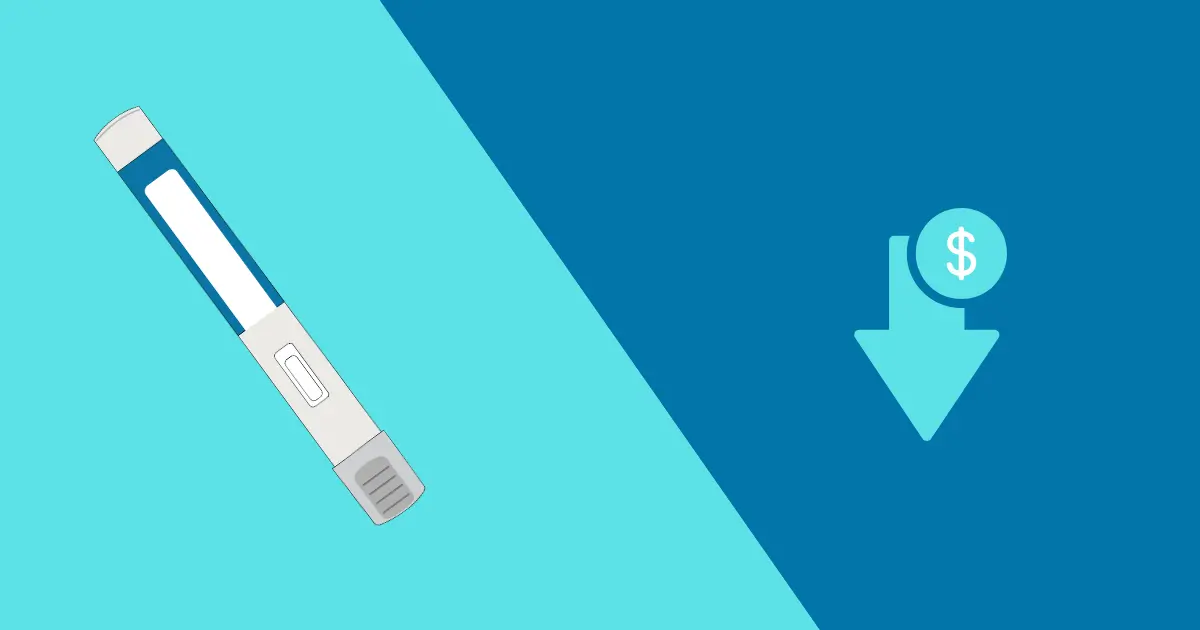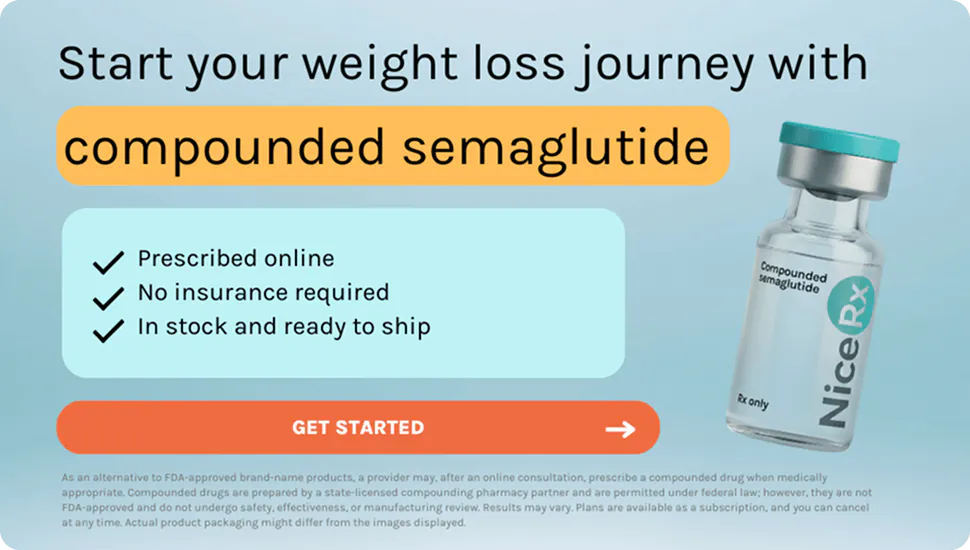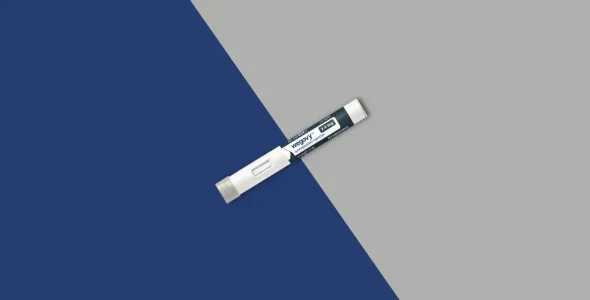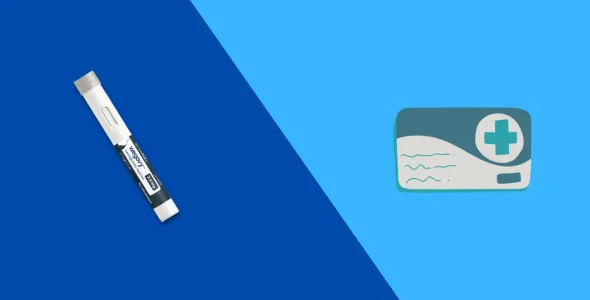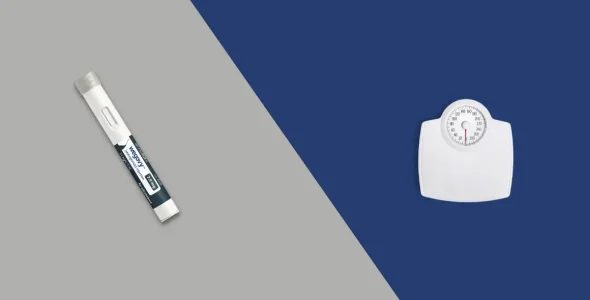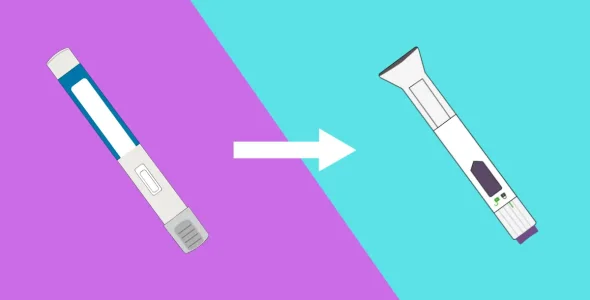Generic Wegovy (2025): What you need to know
Looking for generic Wegovy (semaglutide)? We explain when it will launch, current cheaper alternatives, compounding pharmacy risks, and how to save on weight loss medications.
Key highlights
- As of 2025, there is no FDA-approved generic Wegovy in the United States, but alternatives and cost-saving options exist.
- An FDA-approved generic version of Wegovy won’t be available until at least 2032 because of patent protection.
- On July 22, 2025, Viatris secured a major legal victory in its patent litigation with Novo Nordisk, removing a key barrier to potential generic competition for Wegovy before 2032.
- There are other ways to save on Wegovy until a generic is available, including using the Wegovy Savings Card, buying from NovoCare pharmacy, prescription discount cards, and others.
Wegovy (semaglutide) is an FDA-approved weekly injectable weight loss medication. The active ingredient, semaglutide, was approved by the FDA in 2021 for chronic weight management in adults and children 12 and older with obesity and for adults who are overweight with one or more weight-related health conditions, like type 2 diabetes or high blood pressure.
In addition to weight loss, Wegovy is approved to lower the risk of serious cardiovascular problems like heart attacks and stroke in obese or overweight adults with heart disease.
Wegovy is a highly effective GLP-1 receptor agonist that mimics GLP-1 receptors in the brain that regulate appetite and slow down how quickly the stomach empties, making you feel fuller for longer.
Wegovy has quickly become popular across the U.S., largely due to its effectiveness in chronic weight management, especially with the rising rates of obesity and growing interest in medical weight loss solutions.
Backed by strong clinical results, it has become one of the most sought-after weight loss medications, leading to high demand that often exceeds supply. But this demand comes with a high price: Wegovy can cost over $1,300 a month without insurance, making it unaffordable for many.
Even with insurance, you may face coverage restrictions or high copays. This high cost is the main reason behind the growing interest in a generic version of Wegovy which could lower out-of-pocket costs and increase access to this weight loss medication.
Are you worried about Wegovy costs? Learn about the current generic status, FDA-approved alternatives for weight loss, and savings tips.
Is there a generic for Wegovy in 2025?
As of May 2025, there is no FDA-approved generic version of semaglutide (the active ingredient in Ozempic and Wegovy) available in the United States. Novo Nordisk’s patents on semaglutide expire in December 2032, which is the earliest a generic could be marketed in the U.S.
Wegovy is a brand-name drug made by Novo Nordisk, and it is protected by multiple U.S. patents, including key patents covering its active ingredient, semaglutide. The main patent for the injectable form of semaglutide, used in Ozempic and Wegovy, is set to expire in 2032, which legally prevents generic drug manufacturers from producing lower-cost generic versions until that date unless they successfully challenge the patents in court or reach a settlement with Novo Nordisk.
In the U.S., pharmaceutical patents typically last about 20 years from the filing date, giving the brand manufacturer a long period of market exclusivity. This exclusivity helps companies recover the high costs of drug development but also delays the availability of lower-cost generics. In the case of semaglutide, some patents may extend into 2041, further complicating and delaying the timeline for a generic version of Wegovy.
Sandoz has announced plans to launch generic Ozempic and Wegovy in Canada in 2026, but the generic will not be available in the U.S. until at least 2032.
Compounded semaglutide has been available in the U.S. during on-and-off drug shortages and when the patient needs a custom formulation that is not commercially available.
Patients looking for more affordable options should talk to their healthcare provider. The FDA has also approved a generic version of liraglutide (Victoza/Saxenda), another GLP-1 medication that helps with blood sugar levels and weight management, which may be an option for some people.
Viatris wins legal dispute in semaglutide patent case
On Tuesday, July 22, a federal district court in the state of Delaware ruled in favor of Mylan (now part of Viatris) in a patent litigation case over a proposed entry of generic semaglutide.
This decision focused on a single patent, known as the #003 patent, which covers the approved treatment methods using semaglutide for the treatment of diabetes and obesity.
Viatris’ legal victory could pave the way for the entry of generic or biosimilar competition to Wegovy, before the patent’s original expiration scheduled for 2032.
Compounded semaglutide for weight loss
Compounded semaglutide is a custom-made medication prepared by a compounding pharmacy, typically in response to drug shortages or patients’ individual needs, such as custom dosing not commercially available.
It is not FDA-approved, but it can be legal under certain conditions, especially when the branded drug (Ozempic or Wegovy) is on the FDA’s shortage list or when the patient needs a custom dose or formulation that isn’t commercially available.
Compounded semaglutide is typically prepared as needed for a patient or in small quantities at a compounding pharmacy, which creates personalized medications by mixing or altering ingredients to meet the specific needs of individual patients. These pharmacies can adjust dosage forms, remove allergens, or create alternatives when commercial drugs are unavailable to meet the needs of patients.
When you get semaglutide from a licensed compounding pharmacy, it is made with semaglutide and other ingredients, such as vitamin B6 and can be adjusted by the pharmacy to suit your individual needs. You will need a prescription from your healthcare provider.
Compounded semaglutide is not FDA-approved, so its safety and effectiveness are not reviewed or evaluated by the FDA.
It’s important to understand that compounded semaglutide is not the same as a generic. A generic drug is FDA-approved, tested for safety and effectiveness, and bioequivalent to the brand-name version. Compounded semaglutide has not undergone this level of review.
Compounding pharmacies began offering semaglutide because of widespread shortages of Ozempic and Wegovy. With demand surging for weight loss and diabetes treatment, these customized versions became a temporary workaround.
Some compounded products have used semaglutide salts or ingredients from unregistered manufacturers, which increases the risk of contamination or incorrect dosing.
Patients should talk to their doctor and make sure the source is reputable and compliant with current FDA regulations.
When will Wegovy generic be available?
A generic drug is a lower-cost version of a brand-name drug with the same active ingredient that must undergo FDA approval to prove its bioequivalence, dosage, safety, and effectiveness.
Generic Wegovy (Wegovy generic name: semaglutide) is not expected to be available in the United States until December 2032, due to existing patent protections held by Novo Nordisk. These patents cover both the injectable form (Ozempic and Wegovy) and the oral form (Rybelsus).
Novo Nordisk holds 29 patents protecting semaglutide (Ozempic/Wegovy/Rybelsus) in the U.S., with key patents expiring as late as 2033. A generic entry may be possible by 2026 if legal challenges succeed or patents expire earlier.
The primary compound patent for injectable semaglutide (Ozempic, Wegovy) is set to expire in December 2032. This patent covers the semaglutide molecule itself, which is central to both Ozempic and Wegovy. While other device-related patents may expire earlier, they do not affect the composition of the drug.
The key formulation patent for oral semaglutide (Rybelsus) is expected to remain in effect until 2036, potentially delaying generic competition for the oral version of semaglutide.
Factors that could delay generics may include:
- Legal battles: Ongoing patent litigation between the brand-name company and generic manufacturers could delay generic or biosimilar approval even after patents begin to expire.
- Manufacturing challenges: Semaglutide is a peptide-based drug, requiring complex synthesis and sterile production, which limits the number of manufacturers that can make it at scale.
- Biologic complexity: Unlike small-molecule drugs, semaglutide is a biologic, meaning any generic version would likely be a biosimilar, which involves a more complicated manufacturing process that is highly regulated and more expensive than manufacturing generic drugs.
Although Wegovy and Ozempic have the active ingredient semaglutide, they are approved for different uses and dosing. Ozempic is FDA-approved for type 2 diabetes management with dosages ranging from 0.5 mg to 2.0 mg once weekly.
Wegovy is approved for chronic weight management and uses a higher dose of up to 2.4 mg once weekly. Some providers prescribe Ozempic “off label” for weight loss, but the lower dosing may make it less effective than Wegovy for that purpose.
Insurance plans typically cover Ozempic for type 2 diabetes but not for weight loss so patients seeking semaglutide (Wegovy) for weight loss may face challenges obtaining coverage.
Semaglutide Patents
| Patent No. | Expiration Date | Type of Patent |
|---|---|---|
| Ozempic | ||
| 8114833 | Aug. 13, 2025 | Formulation patent |
| 8129343 | Dec. 5, 2031 | Compound patent |
| 8536122 | Mar. 20, 2026 | Compound patent |
| 8684969 | Oct. 20, 2025 | Injection device |
| 8920383 | Jul. 17, 2026 | Mechanism for injection device |
| 9108002 | Jan. 20, 2026 | Injection device |
| 9132239 | Feb. 1, 2032 | Mechanism for injection device |
| 9457154 | Sep. 29, 2027 | Injection device |
| 9616180 | Jan. 20, 2026 | Injection device |
| 9687611 | Feb. 27, 2027 | Injection device |
| 9775953 | Jul. 17, 2026 | Mechanism for injection device |
| 9861757 | Jan. 20, 2026 | Injection device |
| 10220155 | Jul. 17, 2026 | Injection device (syringe) |
| 10335462 | Jun. 21, 2033 | Method for treating type-2 diabetes |
| 10357616 | Jan. 20, 2026 | Injection device |
| 10376652 | Jan. 20, 2026 | Injection device |
| 11097063 | Jul. 17, 2026 | Injection device (syringe) |
| 11311679 | Jan. 20, 2026 | Injection device |
| 11446443 | Oct. 20, 2025 | Injection device |
| RE46363 | Aug. 3, 2026 | Mechanism for injection device |
| Wegovy | ||
| 8129343 | Dec. 5, 2031 | Compound patent |
| 8536122 | Mar. 20, 2026 | Compound patent |
| 9764003 | Jun. 21, 2033 | Method for reducing body weight |
| 10888605 | Aug. 24, 2038 | Formulation patent |
| 11318191 | Feb. 17, 2041 | Formulation patent |
| 11752198 | Aug. 24, 2038 | Formulation patent |
| 12029779 | Oct. 10, 2038 | Method for reducing body weight |
| Rybelsus | ||
| 11833248 | Feb. 1, 2039 | Formulation patent |
| 8129343 | Dec. 5, 2031 | Compound patent |
| 8536122 | Mar. 20, 2026 | Compound patent |
| 9278123 | Dec. 16, 2031 | Formulation patent |
| 10086047 | Dec. 16, 2031 | Formulation patent |
| 10278923 | May 2, 2034 | Method of treating diabetes or obesity |
| 10933120 | Mar. 15, 2033 | Formulation patent |
| 10960052 | Dec. 16, 2031 | Formulation patent |
| 11382957 | Dec. 16, 2031 | Formulation patent |
| 11759501 | Mar. 15, 2033 | Formulation patent |
| 11759502 | Mar. 15, 2023 | Formulation patent |
| 11759503 | Mar. 15, 2023 | Formulation patent |
Importance of generic Wegovy for weight management
As demand for weight loss treatments grows, many patients face a common hurdle: cost. Wegovy (semaglutide), a GLP-1 receptor agonist approved by the FDA for chronic weight management, has shown great results, but its high price is often unaffordable or inaccessible without insurance.
Generic drugs are cheaper than brand-name drugs because the manufacturer doesn’t have to pay for the original research and development. Once FDA-approved, generic drugs must have the same safety, strength, and efficacy as the brand-name drug, but are available at a fraction of the cost of the brand-name drug. This has a big impact on individual patient affordability and overall healthcare spending.
There is still uncertainty about when a generic Wegovy will be available in the U.S. The drug is protected by several patents, and the main patent doesn’t expire until at least December 2031. Pharmaceutical patent law is complicated, and brand-name companies can file new patents or sue to delay generic competition.
There are ongoing policy discussions and advocacy efforts to make GLP-1 drugs like semaglutide more affordable and accessible, including calls to have the government negotiate drug prices and expand compounding in cases of shortages. Patients will continue to face high costs and limited access until a generic is approved by the FDA.
If a generic version of Wegovy were approved, it could change the landscape of weight management treatment. With a lower-cost alternative to the brand-name drug, many more people would have access to evidence-based medical support for weight loss, support that has been out of reach for many due to cost and insurance limitations.
Over time, a widely available and affordable generic Wegovy could be a game changer in addressing the obesity epidemic, reducing the prevalence of obesity-related conditions and improving overall public health outcomes.
Side effects of Wegovy
Wegovy is a safe and effective subcutaneous weekly injection that belongs to the drug class glucagon-like-peptide-1 (GLP-1 receptor agonist) used for weight management, but it can cause gastrointestinal side effects. These symptoms usually improve as your body gets used to the medication.
The most common side effects of Wegovy include:
- Nausea
- Vomiting
- Diarrhea
- Stomach pain
- Decreased appetite
- Indigestion
- Belching
- Constipation
- Headache
Wegovy can cause serious side effects such as pancreatitis (inflammation of the pancreas), gallbladder problems, changes in vision (diabetic retinopathy), allergic reactions, and kidney problems or kidney failure.
Wegovy can also cause low blood sugar (hypoglycemia), especially if you are taking other diabetes medications. Over time, this can lead to episodes of hypoglycemia, which need careful management, so monitor your blood glucose levels regularly.
Wegovy has a black box warning from the U.S. Food and Drug Administration (FDA) for the risk of thyroid tumors or thyroid cancer, including medullary thyroid carcinoma (MTC).
It is essential to be aware of these potential side effects and seek medical advice from your healthcare professional if you notice any concerning symptoms.
Wegovy cost and insurance coverage
The list price of Wegovy is $1,349.02 per month, according to the manufacturer, Novo Nordisk, which comes to about $337.30 per week or $16,188.20 per year.
The list price isn’t necessarily the price you’ll pay at the pharmacy. For people paying out of pocket, the average retail price can vary based on many factors such as your location, the pharmacy you use, the reason your doctor prescribed it, and if you have insurance.
To get Wegovy for as low as $0, you can use the Wegovy Savings Card from Novo Nordisk. This offer is only available to people with commercial drug insurance, like an employer-sponsored health plan. If your plan covers Wegovy, you can get it for as low as $0 for the first 13 months. If your plan doesn’t cover Wegovy, the price for a 28-day supply is capped at $499.
If you want to use a Wegovy coupon from a website like BuzzRx or SingleCare, it can only be used on its own and cannot be combined with insurance. Check if using your insurance will give you a better price for Wegovy. If not, you can use the coupon to pay for your medication at a participating pharmacy.
Commercial and private insurance
To check if Wegovy is covered by your insurance, review your plan’s drug formulary (covered drug list), which includes a list of all of the drugs covered by your plan. Novo Nordisk also provides a free tool to help you check if Wegovy is covered by insurance.
The cost of Wegovy with insurance depends on your specific plan. Some plans may even cover the full cost of your medication. To find out exactly how much you’ll pay, call your insurance company using the phone number on your insurance card.
In some cases, the insurance company will require prior authorization for approval. You will need to work with your healthcare provider to submit the documents required for prior authorization.
If Wegovy isn’t covered by your insurance plan, you can submit a medical exception request with the help of your healthcare provider. If the medical exception request or prior authorization is denied, you can appeal with the help of your healthcare provider.
How to save on Wegovy without a generic
A Wegovy coupon is a discount that can help you pay less for Wegovy if you qualify. There are different types of coupons, like the official Wegovy Savings Card from Novo Nordisk (the company that makes Wegovy), and coupons from websites like GoodRx, SingleCare, and Optum Perks.
Wegovy Savings Card program
With the Wegovy Saving Card, you could pay as little as $0 per month if your commercial insurance covers Wegovy, with a maximum savings of $225 per month.
If you have commercial insurance that doesn’t cover Wegovy or are paying with cash (excluding government beneficiaries), you’ll pay $499 for a 28-day supply of Wegovy. This offer is available for all 5 different dose strengths of Wegovy.
To qualify for the Wegovy Savings Card, you must meet certain criteria. If you’re eligible for the savings card, you can join WeGoTogether for free. This program offers personalized support to help with weight loss and maintenance, including access to a health coach, a progress-tracking portal, and more.
NovoCare Pharmacy
NovoCare Pharmacy is an option for patients who do not have insurance coverage for Wegovy. You can purchase all dosage strengths of the medication for $499 per month, directly from the manufacturer’s direct-to-consumer pharmacy.
Prescription discount cards
If you don’t qualify for the Wegovy Savings Card or want to compare prices at different pharmacies, several drug discount websites offer coupons for participating pharmacies. These coupons can help you save between $144 and $465, which is about 9% to 26% off the retail price of Wegovy, depending on the pharmacy and the discount site.
Here are some reputable websites that offer Wegovy coupons and discounts for Ozempic, Wegovy, and Rybelsus. These coupons can be used at participating pharmacies.
- GoodRx: A well-known platform that allows you to compare prescription prices at local pharmacies and provides discounts of up to 80% off the retail price.
- SingleCare: Provides prescription savings cards that can be used at thousands of pharmacies across the U.S. with discounts of up to 80% off the retail price.
- WellRx: Provides a free prescription discount card that offers savings on medications like semaglutide with a discount of up to 80%.
- Optum Perks: A prescription savings card that can be used at many pharmacies across the U.S. with a discount of up to 80%.
Online pharmacies
Buying Wegovy online is safe if you use reputable sources. The FDA recommends purchasing prescription medications with a prescription from licensed pharmacies. Use the National Association of Boards of Pharmacy’s search tool to see if an online pharmacy is legit.
Mail-order pharmacies
Mail-order pharmacies can offer lower prices because they have lower overhead since they don’t need physical stores. They often offer 90-day supplies, which can be cheaper per dose. Additionally, mail-order pharmacies may have special pricing agreements with insurance plans or work directly with drug manufacturers, cutting out extra costs. If you’re considering using one, check with your insurance provider to see if it’s covered and compare prices with your local pharmacy.
90-day supply
Sometimes, getting a 90-day supply of Wegovy can be cheaper than getting three 30-day supplies. Ask your pharmacist to compare the prices. If the 90-day option saves you money and you can afford it, it might be a better choice.
FDA-approved alternatives for weight loss
It’s essential to remember that any changes to your weight-loss medication, whether starting, stopping, or switching, depend on your medical condition and should only be made under the guidance of a qualified healthcare provider. Always tell your doctor or pharmacist about all over-the-counter medications, supplements, and vitamins you take.
Here are some commonly used GLP-1 receptor agonist alternatives to Wegovy currently available in the U.S. for weight loss:
Ozempic (semaglutide)
Ozempic is a prescription medication approved by the FDA for the treatment of type 2 diabetes. Its active ingredient, semaglutide, is a GLP-1 receptor agonist that helps regulate blood sugar levels and also promotes weight loss. However, a lower dose of semaglutide is used in Ozempic as compared to that in Wegovy, a medication specifically approved for chronic weight management.
Ozempic is typically prescribed in doses ranging from 0.5 mg to 2.0 mg once weekly. Wegovy, approved for weight loss in individuals with obesity or overweight with at least one weight-related condition, uses a higher dose, up to 2.4 mg once weekly.
Because of these dosage differences, Ozempic may not be as effective for weight loss as Wegovy, particularly in individuals seeking significant weight reduction.
Despite being approved only for diabetes, Ozempic is sometimes prescribed off-label for weight loss, especially when Wegovy is unavailable or not covered by insurance. Doctors may consider this approach for patients who meet clinical criteria for weight management.
Zepbound (tirzepatide)
Zepbound is an FDA-approved weight loss drug that contains the same active ingredient as Mounjaro, tirzepatide.
Zepbound is FDA-approved for weight management in adults with obesity (BMI of 30 or higher) or overweight (BMI of 27 or higher) and related health issues like high blood pressure or diabetes.
Zepbound is a once-weekly injection that works by targeting two hormones (GLP-1 and GIP) to help reduce appetite and improve blood sugar control, making it a powerful option for weight loss. It’s administered as a weekly injection, similar to Mounjaro.
Saxenda (liraglutide)
Saxenda is a daily injection approved for weight loss. Approved in 2010, Saxenda (liraglutide) was the first GLP-1 medication approved for weight loss in adults with obesity or overweight with at least one weight-related health issue. It is also approved for certain children 12 and older with obesity.
Saxenda, being an older GLP-1 medication, has some downsides compared to newer options like Zepbound. For example, it’s taken daily instead of weekly, and you might lose less weight with it.
In a 56-week clinical trial, people taking Saxenda 3 mg once a day lost an average of 18 lbs, while those using a placebo injection only lost 8 lbs. It has also shown heart health benefits for people with diabetes or those at high risk of heart disease.
Generic liraglutide
The FDA approved liraglutide, the first generic of a once-daily GLP-1 injection, in December 2024.
Manufactured by Hikma Pharmaceuticals, this once-daily injectable is for glycemic control in adults and pediatric patients 10 years and older with type 2 diabetes. It has a boxed warning for thyroid C-cell tumors and other safety considerations.
Biocon Limited launched its generic liraglutide in the UK in February 2025 under the brand names Liraglutide Biocon for diabetes and Biolide for chronic weight management. This was the first time a generics company got approval for generic liraglutide in a major regulated market.
Contrave (naltrexone/bupropion)
Contrave is an FDA-approved oral prescription medication taken twice daily and used to help with weight loss in adults who are obese (BMI ≥30) or overweight (BMI ≥27) with at least one weight-related condition such as hypertension, type 2 diabetes, or dyslipidemia.
It works by reducing hunger and cravings. It combines two drugs, naltrexone and bupropion, to affect brain chemicals that control hunger.
Contrave combines two medications:
- Bupropion: An antidepressant and smoking cessation aid that may reduce appetite and increase energy expenditure.
- Naltrexone: Typically used to treat alcohol and opioid dependence; in this combination, it helps reduce food cravings by acting on the brain’s reward system.
On average, Contrave costs $694–817 per month without insurance.
Qsymia (phentermine/topiramate ER)
Qsymia is an FDA-approved once-daily oral medication used for chronic weight management in adults who are obese (BMI ≥30) or overweight (BMI ≥27) with at least one weight-related condition such as type 2 diabetes, high blood pressure, or high cholesterol.
Qsymia combines two active ingredients:
- Phentermine: A stimulant similar to an amphetamine, it acts as an appetite suppressant by increasing norepinephrine in the brain, which helps reduce hunger.
- Topiramate ER (extended-release): An anti-seizure medication that also helps with appetite suppression and satiety, though its exact mechanism for weight loss isn’t fully understood.
On average, Qsymia costs $149 per month without insurance.
Orlistat (Alli/Xenical)
Xenical or Alli is taken three times daily and helps with weight loss by blocking the absorption of some fat from the food you eat. It works in the stomach and intestines to reduce the number of calories your body absorbs.
On average, Xenical costs $709 per month without insurance.
FAQs
Will Wegovy ever go generic?
Yes, Wegovy (semaglutide) will eventually go generic, but not until its patent expires. This will likely happen sometime in 2032, unless the patent is extended or challenged earlier.
Is compounded semaglutide as good as Wegovy?
Compounded semaglutide is not the same as Wegovy, and its quality and safety can vary. It might work for some people, but it’s not FDA-approved.
What’s the closest drug to Wegovy?
The closest drug to Wegovy is Ozempic, which has the same main ingredient, semaglutide. Ozempic is mainly used for diabetes, but many people use it for weight loss, like Wegovy.
Can I get Wegovy for $25/month?
Yes, most people with commercial health insurance can get Wegovy for $0 to $25 a month. Novo Nordisk has a savings program that helps lower the cost for those who qualify.
Conclusion
As of 2025, there is no FDA-approved generic version of Wegovy available in the United States.
Wegovy can be a powerful tool to reduce body weight, but it works best when combined with healthy lifestyle changes.
Although some compounding pharmacies have offered compounded semaglutide during drug shortages or when patients require a custom dose or formulation, it is not a generic drug.
Fortunately, there are several FDA-approved alternatives, including other GLP-1 medications like Ozempic, Saxenda and Zepbound, which may be appropriate based on individual needs and insurance coverage.
Patients seeking more affordable options should consider manufacturer coupons, insurance appeals, or trying older GLP-1 drugs like generic liraglutide if appropriate.
It’s essential to consult with a healthcare provider to choose the best treatment plan that is suitable for your health condition, budget, and insurance coverage. Your provider can also help navigate insurance requirements, such as prior authorization or step therapy.
